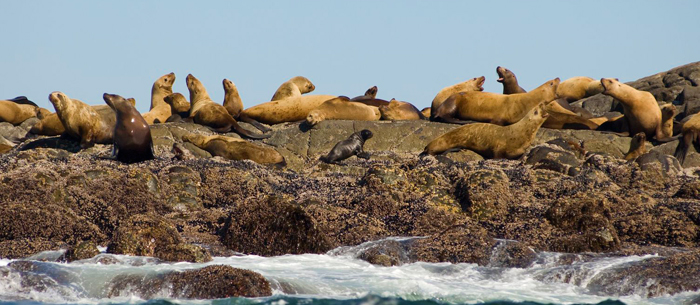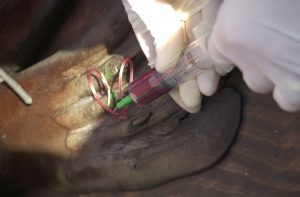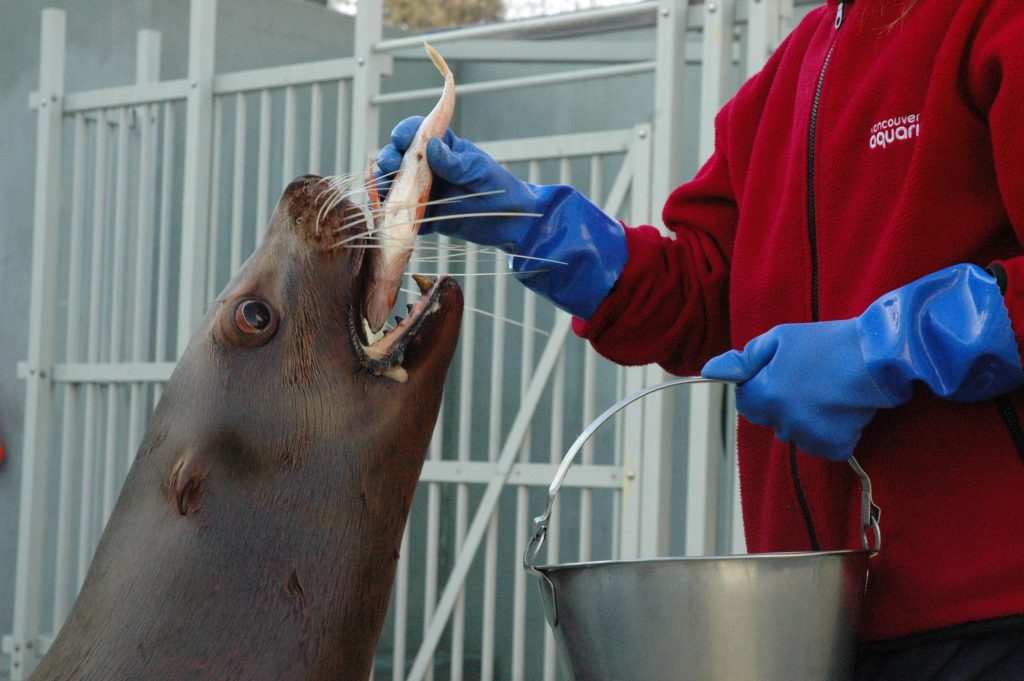
Feeling stressed? It’s a common complaint, but stress isn’t a uniquely human condition. Marine mammals also experience stress, especially when their environment changes. Changes in the ocean food supply, for example, can cause nutritional stress in Steller sea lions, which can cause a population to decline.
While there is currently no easy way to assess the nutritional status of Steller sea lions in the wild, the emerging field of nutrigenomics is promising. In a new Consortium study led by Dr. Jérôme Spitz (University of British Columbia), researchers demonstrated that biomarkers in blood samples can be used to identify nutritional stress in Steller sea lions. The study was published in the Journal of Comparative Biochemistry and Physiology, Part A.
“Nutrigenomics is a branch of genomics that explores the link between gene expression and nutrition,” says Spitz. “Until now, nutrigenomics has focused on identifying disease markers in human health, but we believe it is time to apply this technology to study and protect endangered species, such as Steller sea lions.”
With further development, such a molecular tool can be used to assess the health of wild marine mammals, Spitz says.

Taking blood samples
Blood Biomarkers
Working with four trained, female Steller sea lions housed at the Vancouver Aquarium, the team of scientists studied the effects of controlled feeding regimes that reproduced the acute and chronic nutritional stress thought to occur in wild sea lions. Using blood samples taken at key points in each trial, the scientists extracted the RNA of white blood cells and measured the response of eight genes known to react to diet restriction in terrestrial mammals. They looked for genes that typically control biological processes such as metabolism, immune response and cell growth.
The results of the study showed that marine mammals respond at a molecular level to nutritional stress in much the same way as terrestrial mammals. Under nutritional stress, the sea lions down-regulated the cellular processes involved in immune response and oxidative stress, and they up-regulated those involved in inflammatory responses and metabolic processes.
“It is often the case that environmental or human pressures are identified too late to prevent or contain a population decline,” says Spitz. “This is especially true for species like Steller sea lions that are long-lived, slow to reproduce and occupy a wide range of habitats. Nutrigenomic studies like ours have the potential to determine if nutritional stress is occurring, and provide early-warning indicators of nutritional stress that can prompt measures to mitigate a population decline.”

Feeding one of the captive Steller sea lions at the Vancouver Aquarium
Promising Results
Spitz notes that the approach the he and his colleagues tested should be developed further to account for other factors that influence nutritional stress—including age, reproductive status, and infection.
In the meantime, the results of their study are encouraging and suggest that nutrigenomics is a promising tool to assess, mitigate and monitor nutritional stress in Steller sea lions and other marine mammals.
“The impacts of fishing and climate change are transforming our oceans,” says Spitz. “Marine mammals are challenged to adapt to these rapid changes, but there are solutions. It’s up to all of us to protect marine wildlife.”
 PUBLICATION
PUBLICATION
[webref_bio title=”A nutrigenomic approach to detect nutritional stress from gene expression in blood samples drawn from Steller sea lions”]
